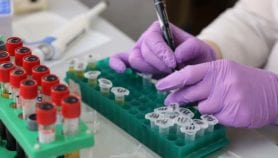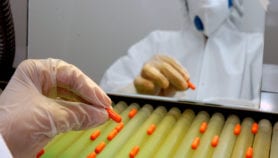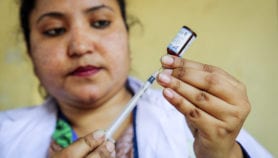By: Pratchaya W.
Send to a friend
The details you provide on this page will not be used to send unsolicited email, and will not be sold to a 3rd party. See privacy policy.
[BANGKOK] Thailand’s compulsory licence policy is under threat following the transfer of a key government official by the recently appointed minister of health.
Doctors are leading a petition, in an attempt to remove the health minister and prevent the policy from being scrapped.
Thailand’s provisional military government started issuing compulsory licenses — which allow the production of cheaper, generic forms of essential, but patented, drugs — in 2006 (see Thailand backs off threat to break drug patents).
They issued compulsory licences for seven drugs, including two for HIV/AIDS, but stirred controversy with others for cancer and heart disease, which some believe are not ’emergency’ diseases and therefore should not be eligible.
But with the change in administration last month (February), western drug companies have put pressure on the new government to drop the policy.
In his first week in office, new public health minister Chaiya Sasomsap announced that he would review the policy, following concerns from the Ministry of Commerce about possible tensions with Thailand’s trade partners, such as the United States.
Last month (26 February) Sasomsap abruptly transferred the Food and Drug Administration secretary-general, Siriwat Tiptaradol, to the role of ministry inspector — a post critics say is ‘virtually inactive’ since it involves no decision making.
Tiptaradol was chairman of the ministry’s compulsory licence drug negotiation panel. At the Food and Drug Administration, he was in charge of approving the registration and withdrawal of drugs in Thailand, as well as finding the generic drugs to replace those for which the government had issued a compulsory licence — activities that added weight to his negotiations with pharmaceutical companies over compulsory licences.
Tiptaradol told SciDev.Net that the transfer came suddenly, with no clear reason, following the minister’s declaration to review the compulsory licence policy. The timing of the transfer has also raised suspicions since bureaucrat reshuffles normally take place in October, with extraordinary transfers made only if officials are found guilty of misconduct.
Tiptaradol has lodged an appeal with the Civil Servant Commission to reverse the transfer.
The transfer has caused concern amongst Thai doctors, who fear it is part of a wider strategy to scrap the compulsory licence policy. There are mounting rumours that the transfers of more officials involved in the policy are planned.
The Rural Doctors Society has been set up a petition calling for a parliamentary review to remove Sasomsap from office. Under Thailand’s constitution 20,000 public signatures can trigger a review — with 12,000 gathered so far.
Jon Ungpakorn, a former Thai Senator, says he is concerned that the removal of Tiptaradol will disrupt the policy, urging the public to closely monitor the health ministry’s moves.
"Compulsory licensing is necessary since we cannot yet properly control access to drugs in the world. The government should listen more to what people want."













